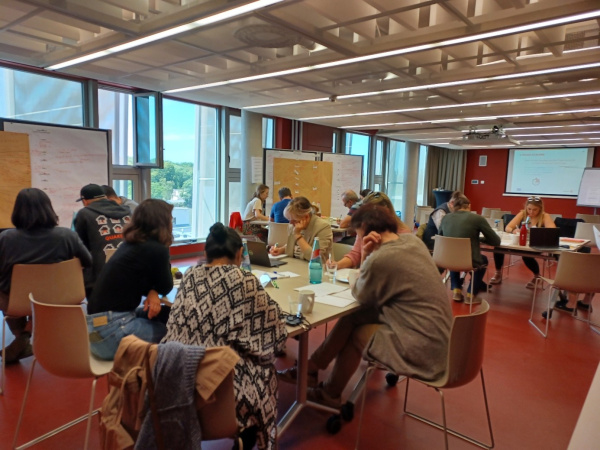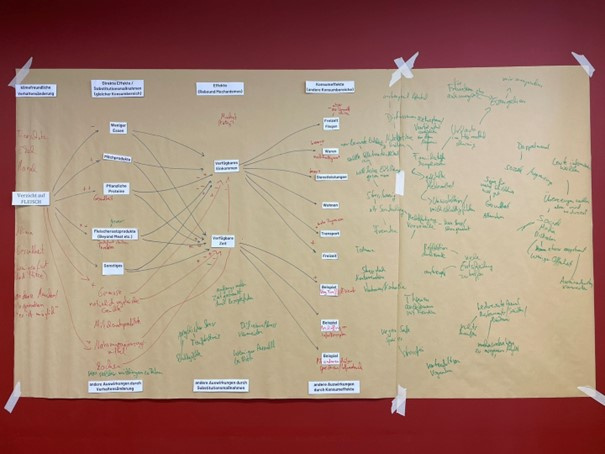
What happens to my social relationships, my bank balance and my time if I live in a climate-friendly way? Do I invest more time and money in other activities, or do I rather save them? How do my social relationships change? How will my health change?
In June, adelphi organised the second of five European workshops on the rebound effects[1] of 1.5°C lifestyles. With the help of these workshops, both participants and the project team should gain insights into the unintended consequences of climate-friendly lifestyle changes.
The German team invited twelve consumers, who have already integrated climate-friendly changes into their lifestyles and thus theoretically should have achieved a significant reduction of their carbon footprint. A distinction was made between four lifestyle changes:
1) Giving up meat consumption
2) Giving up of flying for private purposes
3) Giving up your car
4) Reducing living spaces
After a short introduction by the project managers Lena Domröse and Maren Tornow, the session got underway: the participants got together in small groups to first identify possible rebound effects in their behaviour. Afterwards, they described the sustainable options they implemented, the effects they had on their time as well as their income, and what they do with the time they have gained or money they have saved. For example, one participant reported that by giving up flying, she invests more time and money in animal welfare organisations. At the same time, she pointed out the increase of money she spends on new clothes as a negative rebound effect.
The afternoon discussion focused on additional negative effects participants experienced in relation to individual well-being, social contacts, health, choice of profession, etc.
In addition, they shared how they cope with such impacts in their everyday life or what unexpected positive developments resulted from them. One element that came up in several groups (giving up flying and giving up meat consumption) was the (emotional) alienation from one's own family or friends, which, in one case, led to the termination of a friendship. The way of dealing with this ranged from avoiding discussions around the the topic, to emotionally distancing oneself from the situation. In another case, one participant expressed that dealing with the issue of meat consumption and vegetarianism led to an overall more conscious approach to nutrition and food procurement.
Finally, participants exchanged on how to support climate-friendly choices, both in terms of financial possibilities and time, and how to avoid negative impacts or effects. Citizens mentioned, among other things, increased education on climate and environmental topics in school institutions, financial incentives through politics, reward systems as well as stricter laws.
All results will be further processed and will soon be available in a public report. Moreover, the findings will be incorporated into the policy recommendations that will be developed at the end of the project.

Translation of the original article from authors Paulina Gotz, Lena Domröse, Maren Tornow (adelphi)
[1] In the environmental context, this often refers to the unintended consequences of a climate-friendly behavioural change or technological innovation that lead to a reduction in the original CO2 savings (vgl. https://www.bmuv.de/fileadmin/Daten_BMU/Pools/Forschungsdatenbank/fkz_3711_14_104_rebound_effekte_bf.pdf#page=19&zoom=100,72,99 )

